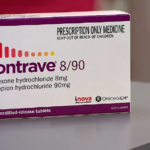Can You Drink Alcohol With Gabapentin?

Drug interactions constitute a significant fraction of avoidable adverse drug reaction. The frequency with which they occur depends, in part, on the number of different drugs that are used simultaneously with other substances including alcohol. Mixing medication and alcohol comes with serious risks – and it’s extremely important to understand the dangers. Findings from studies suggest a significant percentage of people do know about the risks of mixing medication with alcohol, but their perceptions of danger somewhat differ to what doctors and pharmacists say.
Results from research also indicate that alcohol is a significant part of many people’s social lives, and the perceived dangers of drinking with medication are perhaps not enough to stop this behavior. Understanding how best to address American health and safety, especially in a nation where, over half the population consumes prescription drugs is important. We can help ourselves, our friends and our community by understanding the dangers and taking steps to prevent harm.
What is Gabapentin?
Gabapentin is an anticonvulsant medication that helps control seizures in people with epilepsy. Some forms of gabapentin can also treat restless legs syndrome or certain types of nerve pain.
Gabapentin appears to work by altering electrical activity in the brain and influencing the activity of chemicals called neurotransmitters, which send messages between nerve cells. Brand names for gabapentin include Horizant, Gralise, and Neurontin. The medication is available in capsule, tablet, or liquid form.
How long will you need to take gabapentin?
This will depend on why you are taking gabapentin and how your pain responds to treatment. You can continue to take gabapentin for as long as it helps your pain if you are not having any side effects. It may be necessary for your doctor to change the dose during your treatment.
Can You Drink Alcohol With Gabapentin?
The combination of gabapentin and alcohol can cause significant drowsiness if you have just started on this medicine or the dose has recently been increased. This is because Gabapentin and alcohol each individually cause central nervous system (CNS) depression and respiratory depression. Combining alcohol and gabapentin can worsen either or both effects.
We advise you not to drink alcohol when you first start this medication and while we are increasing the dose. Once you are on a stable dose and the drowsiness caused by the gabapentin stops, you may drink alcohol in moderation.
Can I take other medicines together with gabapentin?
The absorption of gabapentin is affected by certain indigestion / antacid mixtures. Always tell your doctor, nurse or pharmacist which other medicines you are taking or buying, so they can make sure there are no interactions between your medicines.
What are the side effects of Gabapentin?
Get emergency medical help if you have signs of an allergic reaction to gabapentin: hives; difficult breathing; swelling of your face, lips, tongue, or throat.
Seek medical treatment if you have a serious drug reaction that can affect many parts of your body. Symptoms may include: skin rash, fever, swollen glands, muscle aches, severe weakness, unusual bruising, upper stomach pain, or yellowing of your skin or eyes.
Report any new or worsening symptoms to your doctor, such as: mood or behavior changes, anxiety, panic attacks, trouble sleeping, or if you feel impulsive, irritable, agitated, hostile, aggressive, restless, hyperactive (mentally or physically), depressed, or have thoughts about suicide or hurting yourself.
Call your doctor at once if you have:
• weak or shallow breathing;
• blue-colored skin, lips, fingers, and toes;
• confusion, extreme drowsiness or weakness;
• problems with balance or muscle movement;
• unusual or involuntary eye movements; or
• increased seizures.
Gabapentin can cause life-threatening breathing problems. A person caring for you should seek emergency medical attention if you have slow breathing with long pauses, blue colored lips, or if you are hard to wake up. Breathing problems may be more likely in older adults or in people with COPD.
Some side effects are more likely in children taking gabapentin. Contact your doctor if the child taking this medicine has any of the following side effects:
• changes in behavior;
• memory problems;
• trouble concentrating; or
• acting restless, hostile, or aggressive.
Common gabapentin side effects may include:
• fever, chills, sore throat, body aches, unusual tiredness;
• jerky movements;
• headache;
• double vision;
• swelling of your legs and feet;
• tremors;
• trouble speaking;
• dizziness, drowsiness, tiredness;
• problems with balance or eye movements; or
• nausea, vomiting.
This is not a complete list of side effects and others may occur. Call your doctor for medical advice about side effects. You may report side effects to FDA at 1-800-FDA-1088.





